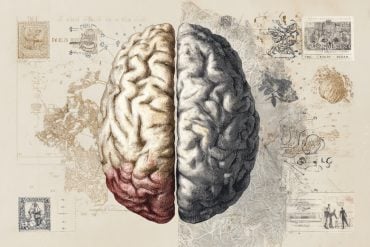Summary: Long term use of oral hormone therapy is associated with a small increased risk of Alzheimer’s disease in postmenopausal women, finds a study carried out in Finland and published in The BMJ today.
Source: BMJ
The researchers stress that the absolute risk is small (9-18 extra cases per 10,000 women per year) and the age at which hormone therapy is started has no bearing on future risk. But they say women should be informed of the potential risk associated with prolonged use.
Hormone therapy is used to relieve menopausal symptoms such as hot flushes and night sweats. Different types of treatments are available – for example, tablets containing oestrogen only or a combination of oestrogen and progestogen, as well as ‘transdermal’ treatments, such as patches, gels and creams.
In Finland, 90% of hormone therapy is given orally.
Several studies have suggested that postmenopausal hormone therapy could protect against Alzheimer’s disease, but a recent clinical trial failed to confirm this benefit, and in fact implied an increased risk of overall dementia in hormone therapy users.
So to better understand this possible association, researchers led by Tomi Mikkola at the University of Helsinki set out to compare use of hormone therapy in postmenopausal women with and without a diagnosis for Alzheimer’s disease.
Using national population and drug registers, they compared data on hormone therapy use for 84,739 postmenopausal women diagnosed with Alzheimer’s disease between 1999 and 2013 (cases) with the same number of postmenopausal women without a diagnosis (controls).
In 83,688 (98.8%) women, the Alzheimer’s disease diagnosis was made at age 60 or older, and 47,239 (55.7%) women were over 80 when diagnosed. And 11,805 (74.9%) women had been taking hormone therapy longer than 10 years.
Overall, use of oral hormone therapy was associated with a 9-17% increased risk for Alzheimer’s disease, whereas use of vaginal hormone therapy showed no such risk.
In absolute terms, this means that nine to 18 additional cases of Alzheimer’s disease per year will be detected in 10,000 women between 70 to 80 years of age, especially in those who had used hormone therapy for over 10 years, explain the authors.
The risk did not differ significantly between users of oestrogen only tablets and users of combined oestrogen-progestogen tablets, and the higher risk was not related to different progestogens.
Age at which hormone therapy was started did not appear to affect future risk for the condition. However, in women who were younger than 60 when they started taking hormone therapy, the increased risk was associated with exposure for over 10 years.
This is an observational study and, as such, can’t establish cause, and the researchers say they cannot rule out the possibility that other unmeasured factors may have affected the results.
Nevertheless, they point out that this is one of the largest studies on the association between between hormone therapy use and risk of Alzheimer’s disease and uses data from a reliable nationwide register.
As such, they say: “Long term use of systemic hormone therapy might be accompanied with an overall increased risk for Alzheimer’s disease, which is not related to the type of progestogen or the age at initiation. By contrast, use of vaginal estradiol shows no such risk.”
Even though the absolute risk for Alzheimer’s disease is small, “our data should be implemented into information for present and future users of hormone therapy for the condition,” they add.
In a linked editorial, Dr JoAnn Manson of Harvard Medical School and Brigham and Women’s Hospital, Boston, Massachusetts, and Dr Pauline Maki of the University of Illinois at Chicago, query whether the findings should change the view that the health pros of hormone therapy outweigh the cons for younger postmenopausal women seeking symptom management.
They conclude, taken as a whole, the available evidence does not suggest that younger women should be concerned about using hormone therapy in the short term.
“Considering the totality of the evidence, these findings should not influence clinical decision making about use of hormone therapy for relatively short term symptom management,” they write.
“For women in early menopause with bothersome vasomotor symptoms, no compelling evidence exists of cognitive concern from randomized trials and instead there is reassurance about cognitive safety.”
But they caution: “Concerns about longer-term use of estrogen plus progestin on cognitive outcomes remain.”

Source:
BMJ
Media Contacts:
BMJ Media Relations Team – The BMJ
Image Source:
The image is in the public domain.
Original Research:
Open access research: Savolainen-Peltonen Hanna, Rahkola-Soisalo Päivi, Hoti Fabian, Vattulainen Pia, Gissler Mika, Ylikorkala Olavi et al. “Use of postmenopausal hormone therapy and risk of Alzheimer’s disease in Finland: nationwide case-control study” BMJ 2019; 364 :l665
doi:10.1136/bmj.l665
Funding
This study was supported by a Helsinki University Hospital research grant and the Jane and Aatos Erkko Foundation. The funders had no role in the study design; in the collection, analysis, and interpretation of data; in the writing of the report; and in the decision to submit the article for publication. We confirm that the researchers were independent from funders and that all authors had full access to all of the data (including statistical reports and tables) in the study and can take responsibility for the integrity of the data and the accuracy of the data analysis.
Competing interests:
All authors have completed the ICMJE uniform disclosure form at www.icmje.org/coi_disclosure.pdf and declare: support from Helsinki University Hospital and the Jane and Aatos Erkko Foundation for the submitted work; speaker and consulting fees for Mylan (HS-P, TSM) and Astellas (TSM); funding for congress trips from Merck, Sharp, and Dohme (HS-P), Astellas (PR-S), and Olympus (PR-S); FH and PV work for EPID Research, which performs financially supported studies for several pharmaceutical companies; no other relationships or activities that could appear to have influenced the submitted work.
Abstract
Use of postmenopausal hormone therapy and risk of Alzheimer’s disease in Finland: nationwide case-control study
Objectives
To compare the use of hormone therapy between Finnish postmenopausal women with and without a diagnosis for Alzheimer’s disease.
Design
Nationwide case-control study.
Setting
Finnish national population and drug register, between 1999 and 2013.
Participants
All postmenopausal women (n=84 739) in Finland who, between 1999 and 2013, received a diagnosis of Alzheimer’s disease from a neurologist or geriatrician, and who were identified from a national drug register. Control women without a diagnosis (n=84 739), matched by age and hospital district, were traced from the Finnish national population register.
Interventions
Data on hormone therapy use were obtained from the Finnish national drug reimbursement register.
Main outcome measures
Odds ratios and 95% confidence intervals for Alzheimer’s disease, calculated with conditional logistic regression analysis.
Results
In 83 688 (98.8%) women, a diagnosis for Alzheimer’s disease was made at the age of 60 years or older, and 47 239 (55.7%) women had been over 80 years of age at diagnosis. Use of systemic hormone therapy was associated with a 9-17% increased risk of Alzheimer’s disease. The risk of the disease did not differ significantly between users of estradiol only (odds ratio 1.09, 95% confidence interval 1.05 to 1.14) and those of oestrogen-progestogen (1.17, 1.13 to 1.21). The risk increases in users of oestrogen-progestogen therapy were not related to different progestogens (norethisterone acetate, medroxyprogesterone acetate, or other progestogens); but in women younger than 60 at hormone therapy initiation, these risk increases were associated with hormone therapy exposure over 10 years. Furthermore, the age at initiation of systemic hormone therapy was not a decisive determinant for the increase in risk of Alzheimer’s disease. The exclusive use of vaginal estradiol did not affect the risk of the disease (0.99, 0.96 to 1.01).
Conclusions
Long term use of systemic hormone therapy might be accompanied with an overall increased risk of Alzheimer’s disease, which is not related to the type of progestogen or the age at initiation of systemic hormone therapy. By contrast, use of vaginal estradiol shows no such risk. Even though the absolute risk increase for Alzheimer’s disease is small, our data should be implemented into information for present and future users of hormone therapy.






